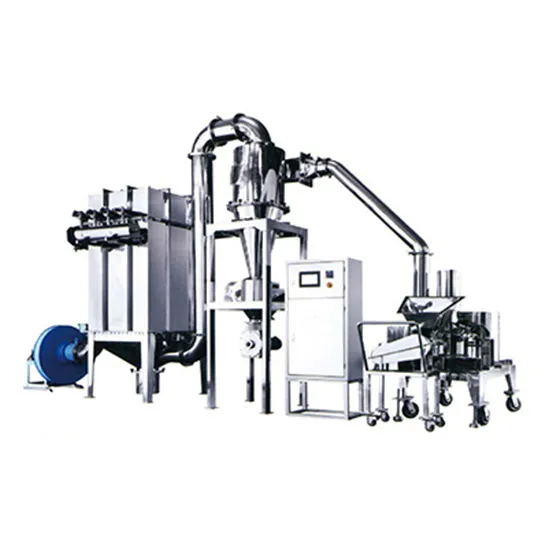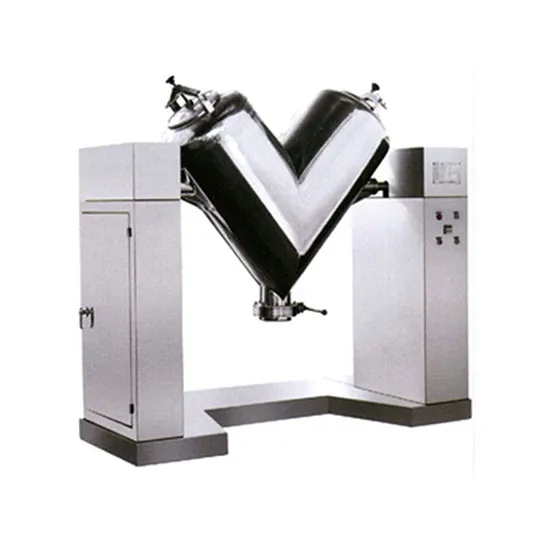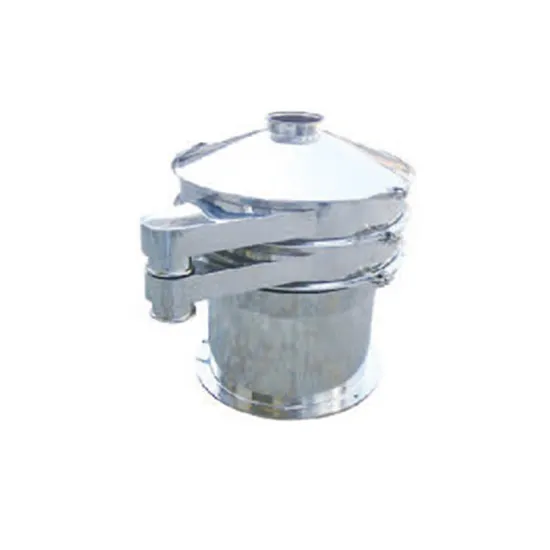NEWS
The Benefits of Granulating Plastic Waste for Resource Conservation
Oct 25,2023
Table of Contents:
1. Introduction: Understanding the Importance of Granulating Plastic Waste
2. The Process of Granulating Plastic Waste
3. Environmental Benefits of Granulating Plastic Waste
4. Economic Benefits of Granulating Plastic Waste
5. Social Benefits of Granulating Plastic Waste
6. Frequently Asked Questions (FAQs)
6.1 How does granulating plastic waste contribute to resource conservation?
6.2 Can all types of plastic waste be granulated?
6.3 Is the granulation process environmentally friendly?
6.4 What industries can benefit from granulated plastic waste?
6.5 How can individuals participate in plastic waste granulation?
7. Conclusion: Embracing Granulation for a Sustainable Future
1. Introduction: Understanding the Importance of Granulating Plastic Waste
In today's world, where plastic waste has become a significant environmental concern, finding effective solutions for its management is crucial. Granulating plastic waste offers a promising approach to tackle this issue while conserving valuable resources. By breaking down plastic waste into granules, it becomes easier to reuse and recycle, leading to numerous benefits for the environment, economy, and society at large.
2. The Process of Granulating Plastic Waste
Granulating plastic waste involves a systematic process that transforms plastic products into small, uniform granules. First, the plastic waste is collected and sorted based on its type. Then, it undergoes a shredding process to reduce its size further. Next, the shredded plastic is fed into a granulator machine, where it is melted and shaped into tiny pellets. These pellets can then be used as raw material for various manufacturing processes, reducing the need for virgin plastic production.
3. Environmental Benefits of Granulating Plastic Waste
Granulating plastic waste brings about several environmental advantages. Firstly, it helps reduce the amount of plastic waste that ends up in landfills or pollutes our oceans and natural habitats. By diverting plastic waste from these disposal methods, we can significantly decrease the negative impact on ecosystems and wildlife.
Additionally, granulating plastic waste reduces the demand for new plastic production. This, in turn, conserves valuable natural resources like petroleum, which is a primary component of plastic. By promoting the reuse and recycling of plastic waste, granulation contributes to a circular economy and minimizes the extraction of finite resources.
4. Economic Benefits of Granulating Plastic Waste
Granulating plastic waste offers substantial economic benefits. Recycling plastic waste through granulation decreases the costs associated with waste management. Instead of paying for waste disposal, businesses can generate revenue by selling granulated plastic to manufacturers who use it as raw material.
Moreover, granulation creates employment opportunities in the recycling industry, supporting local economies and driving sustainable growth. As the demand for granulated plastic increases, so does the need for skilled workers involved in the collection, sorting, and processing of plastic waste.
5. Social Benefits of Granulating Plastic Waste
Apart from the environmental and economic advantages, granulating plastic waste also brings social benefits. By embracing this technology, we can raise awareness about the importance of responsible waste management and encourage individuals and businesses to adopt sustainable practices.
Moreover, utilizing granulated plastic in manufacturing processes can lead to the production of more environmentally friendly products. These products not only contribute to a healthier planet but also cater to the growing demand for sustainable alternatives among conscious consumers.
6. Frequently Asked Questions (FAQs)
6.1 How does granulating plastic waste contribute to resource conservation?
Granulating plastic waste conserves resources by reducing the need for virgin plastic production. It allows for the reuse and recycling of plastic waste, minimizing the extraction of natural resources like petroleum.
6.2 Can all types of plastic waste be granulated?
Most types of plastic waste can be granulated, including common plastics like PET, HDPE, and PVC. However, certain types, such as mixed plastics or those contaminated with hazardous materials, may require additional processing or specific recycling methods.
6.3 Is the granulation process environmentally friendly?
Yes, the granulation process is environmentally friendly compared to other waste management methods. By recycling plastic waste instead of sending it to landfills or incinerators, granulation helps reduce pollution, conserve resources, and minimize greenhouse gas emissions.
6.4 What industries can benefit from granulated plastic waste?
Various industries can benefit from granulated plastic waste, including packaging, automotive, construction, and electronics. Granulated plastic can be used as a raw material in the production of new plastic products, reducing the reliance on virgin plastic.
6.5 How can individuals participate in plastic waste granulation?
Individuals can participate in plastic waste granulation by ensuring proper sorting and disposal of their plastic waste. This includes separating different types of plastic and delivering them to recycling centers or collection points that accept plastic for granulation.
7. Conclusion: Embracing Granulation for a Sustainable Future
In conclusion, granulating plastic waste presents a solution that promotes resource conservation, mitigates environmental damage, and fosters economic and social benefits. By granulating plastic waste, we can contribute to the creation of a circular economy, reduce the strain on natural resources, and strive towards a more sustainable future. Let us embrace granulation as a practical and effective method for managing plastic waste, preserving our planet for generations to come.
1. Introduction: Understanding the Importance of Granulating Plastic Waste
2. The Process of Granulating Plastic Waste
3. Environmental Benefits of Granulating Plastic Waste
4. Economic Benefits of Granulating Plastic Waste
5. Social Benefits of Granulating Plastic Waste
6. Frequently Asked Questions (FAQs)
6.1 How does granulating plastic waste contribute to resource conservation?
6.2 Can all types of plastic waste be granulated?
6.3 Is the granulation process environmentally friendly?
6.4 What industries can benefit from granulated plastic waste?
6.5 How can individuals participate in plastic waste granulation?
7. Conclusion: Embracing Granulation for a Sustainable Future
1. Introduction: Understanding the Importance of Granulating Plastic Waste
In today's world, where plastic waste has become a significant environmental concern, finding effective solutions for its management is crucial. Granulating plastic waste offers a promising approach to tackle this issue while conserving valuable resources. By breaking down plastic waste into granules, it becomes easier to reuse and recycle, leading to numerous benefits for the environment, economy, and society at large.
2. The Process of Granulating Plastic Waste
Granulating plastic waste involves a systematic process that transforms plastic products into small, uniform granules. First, the plastic waste is collected and sorted based on its type. Then, it undergoes a shredding process to reduce its size further. Next, the shredded plastic is fed into a granulator machine, where it is melted and shaped into tiny pellets. These pellets can then be used as raw material for various manufacturing processes, reducing the need for virgin plastic production.
3. Environmental Benefits of Granulating Plastic Waste
Granulating plastic waste brings about several environmental advantages. Firstly, it helps reduce the amount of plastic waste that ends up in landfills or pollutes our oceans and natural habitats. By diverting plastic waste from these disposal methods, we can significantly decrease the negative impact on ecosystems and wildlife.
Additionally, granulating plastic waste reduces the demand for new plastic production. This, in turn, conserves valuable natural resources like petroleum, which is a primary component of plastic. By promoting the reuse and recycling of plastic waste, granulation contributes to a circular economy and minimizes the extraction of finite resources.
4. Economic Benefits of Granulating Plastic Waste
Granulating plastic waste offers substantial economic benefits. Recycling plastic waste through granulation decreases the costs associated with waste management. Instead of paying for waste disposal, businesses can generate revenue by selling granulated plastic to manufacturers who use it as raw material.
Moreover, granulation creates employment opportunities in the recycling industry, supporting local economies and driving sustainable growth. As the demand for granulated plastic increases, so does the need for skilled workers involved in the collection, sorting, and processing of plastic waste.
5. Social Benefits of Granulating Plastic Waste
Apart from the environmental and economic advantages, granulating plastic waste also brings social benefits. By embracing this technology, we can raise awareness about the importance of responsible waste management and encourage individuals and businesses to adopt sustainable practices.
Moreover, utilizing granulated plastic in manufacturing processes can lead to the production of more environmentally friendly products. These products not only contribute to a healthier planet but also cater to the growing demand for sustainable alternatives among conscious consumers.
6. Frequently Asked Questions (FAQs)
6.1 How does granulating plastic waste contribute to resource conservation?
Granulating plastic waste conserves resources by reducing the need for virgin plastic production. It allows for the reuse and recycling of plastic waste, minimizing the extraction of natural resources like petroleum.
6.2 Can all types of plastic waste be granulated?
Most types of plastic waste can be granulated, including common plastics like PET, HDPE, and PVC. However, certain types, such as mixed plastics or those contaminated with hazardous materials, may require additional processing or specific recycling methods.
6.3 Is the granulation process environmentally friendly?
Yes, the granulation process is environmentally friendly compared to other waste management methods. By recycling plastic waste instead of sending it to landfills or incinerators, granulation helps reduce pollution, conserve resources, and minimize greenhouse gas emissions.
6.4 What industries can benefit from granulated plastic waste?
Various industries can benefit from granulated plastic waste, including packaging, automotive, construction, and electronics. Granulated plastic can be used as a raw material in the production of new plastic products, reducing the reliance on virgin plastic.
6.5 How can individuals participate in plastic waste granulation?
Individuals can participate in plastic waste granulation by ensuring proper sorting and disposal of their plastic waste. This includes separating different types of plastic and delivering them to recycling centers or collection points that accept plastic for granulation.
7. Conclusion: Embracing Granulation for a Sustainable Future
In conclusion, granulating plastic waste presents a solution that promotes resource conservation, mitigates environmental damage, and fosters economic and social benefits. By granulating plastic waste, we can contribute to the creation of a circular economy, reduce the strain on natural resources, and strive towards a more sustainable future. Let us embrace granulation as a practical and effective method for managing plastic waste, preserving our planet for generations to come.
More News










